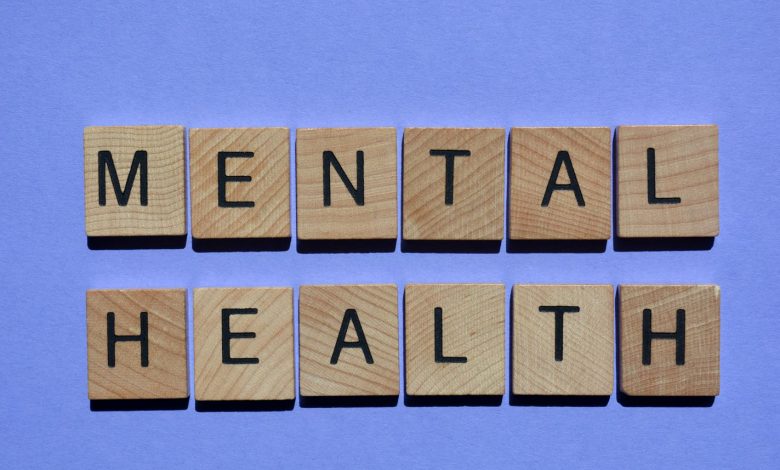How to Talk to Your Kids About Their Mental Health

Mental Health is being able to maintain a sense of balance in your life by having control over your mental, emotional, and physical well-being. It’s creating a safe space for all members of your family to feel understood and appreciated.
Mental health encompasses the ability to cope with negative events, develop positive relationships, and function successfully on a daily basis.
This includes taking care of everything from getting enough sleep (or too much) to supporting yourself financially or mentally in the event that something goes wrong.
What Does Mental Health Look Like?
Mental health doesn’t have one “typical” look, which can be defined by general feelings or behaviors; rather, people experience different levels of mental wellness in different ways.
The following are all signs of Good mental health:
- Feeling loved and accepted by others, as well as feeling secure with yourself.
- Feeling in control of your life.
- Having the energy to get things done on a daily basis.
- Being mature enough to cope with your feelings and concerns on your own or with the help of others when necessary.
- Ability to take care of yourself both physically, mentally, and emotionally.
The following are all signs of poor mental health:
- Excessive worries or paranoia
- Unexplained sadness or anxiety
- Inability to get things done due to feelings of hopelessness, worthlessness, etc.
- Being unable to manage emotional situations without the help of others.
- Unable to feel secure with yourself.
Everyone has a different experience with mental health, and there is no “one size fits all” way to cope or react to a situation.
Letting your kids know that it’s okay not to be okay and that they don’t have to do everything on their own can help them embrace their authentic selves as well as develop skills they will need throughout life.
The Importance of Talking About Mental Health as Early as Possible
Talking to your kids about their mental health can be hard because you want to protect them, and you want to avoid the real or perceived stigma of mental health.
By avoiding the subject entirely, your kids may develop a sense of shame or lack the skills necessary to cope with whatever negative emotion(s) they are experiencing.
The best time to talk about mental health is early on in life whenever possible- this allows them to learn coping skills and react in a positive way during any difficult situation from childhood through adulthood.
When To Start Talking To Your Child About Mental Health Issues?
Talking to your kids about the potential of mental health issues can start as early as possible- even before they are born.
Introducing the idea of mental well-being at a young age opens the door for parents to start having conversations with their children even before they are able to communicate.
The message that the child starts to grow up with will differ based on their experiences and the environment they are raised in, be it positive or negative.
It’s important that you don’t force your ideas on them but rather try to introduce healthy coping mechanisms and an understanding of mental wellness at a very early age.
Adults who have been affected by mental illness or who have dealt with it themselves can provide a great resource for continuing conversations with children who show signs of potential issues.
Best Way To Talk To Your Child About Depression & Anxiety
If you need to speak with your child about their mental health or even the mental health of a family member or friend, it’s important to be as patient and understanding as you can.
This will help them feel comfortable talking about what they are experiencing and feeling- even if that means talking about the problem or issue that may bring them to tears or anger.
As much as possible, be sure to avoid making the conversation about your needs and desires by trying not to talk down to your kids.
Here are a few specific ways to help your child discuss mental health problems.
Set Up Talking Times
It’s important to set aside times to talk with your child(ren) about difficult subjects to make the conversation as comfortable as possible.
If you wait until they come to you with an issue, then it may be too late, and they may become numb to your chiding or become defensive.
If you set a specific time that you can chat and avoid the urge to bring it up throughout the day, this will allow them to feel more comfortable coming to you with anything that might be bothering them- not just what is on their mind at that moment in time.
Involve Their School
Involving the school in a discussion about mental health is critical, especially during an age where kids are under a lot of stress and pressure.
Encourage them to talk to their teachers, counselors, or school psychologist- they may be able to help your child come up with coping skills and possibly even keep a close eye on them so that they can notice any potential red flags early.
Don’t Avoid The Topic Of Mental Illness/Issues
Many people avoid discussing mental health issues for fear of stigmatizing them or making it awkward for the person(s) dealing with the problem.
This is a big mistake- in truth, it’s better to talk openly and honestly with your kids about mental health than to let an issue fester.
Whether you have had with mental health issues before or there has been a prior role model, you can use that as a jumping-off point to discuss what to look out for, how it can be treated, and who you can talk to if the situation becomes overwhelming.
Encourage Them To Look For Help Early If They Wish To Get Help Later On
Children who feel like they may have a problem may be afraid of coming forward or allowing themselves the freedom to get help because of the overwhelming stigma associated with mental illness.
It’s important that children feel like they can come to you and openly talk about their situation, as well as encourage them to think about finding medical or mental health help.
Listen To Their Concerns Without Judgment
This is the most significant thing you can do- if done correctly, it might be the only thing your child needs to continue to have a healthy mental life.
By listening without judgment, you show your child that they can feel comfortable talking about whatever is on their mind, even if it doesn’t make sense to you.
If they are struggling with their mental health, they will be more likely to talk to you and seek professional help.
Ask Questioning & Reassuring Questions
Kids who have anxiety or depression may be filled with questions- but often, they don’t know how to express themselves.
Children who have trouble expressing themselves may put a lot of pressure on you by asking overly detailed questions or even making comments about the illness itself in an embarrassing way.
Instead, ask them to explain what is bothering them by using the Socratic Method, which involves posing your child specific questions that allow them to tell you what’s bothering them without making it sound like a question.
Don’t Fret Over Their Bad-Talking
Kids who have concerns about their mental health may not be able to articulate what it is they are experiencing but may talk openly and freely about their issues.
In this situation, the best thing you can do is create a safe environment for them to express those feelings and reassure them that they are safe and they can tell you anything.
Encourage Them To Speak For Themselves If They Are Being Bullied
Bullying is a problem in every community- it happens in schools, colleges, workplaces, and anywhere else children congregate.
Many of the same problems that arise in these situations also happen for children who struggle with mental health or behavioral difficulties.
If your child feels unsafe or is being bullied, it’s important to encourage them to express their feelings without shaming the bully or victim.
Keep It Positive & Encourage Them To Look For Help
Encouraging children who are struggling with mental health issues to seek help is one of the most difficult but most important things you can do for them and their mental health.
If kids think that the treatment or solution is something that can be easily fixed by getting a miracle pill or talking to their best friends or teachers, it will likely discourage them from seeking help.
Keep them in the habit of seeking professional help for issues that are more than just a passing phase and encourage them to keep an open mind about how they deal with mental health issues.
Conclusion
Despite the fact that mental health is a part of everyone’s daily life and we all deal with it in some form, most people are not educated about it, nor do they have the ability to advocate for their own mental health.
Please take these tips seriously, and don’t be afraid to ask questions or talk with your children about their issues.
They will feel more comfortable going to a professional if they know you are taking an interest in what they are going through mentally.





